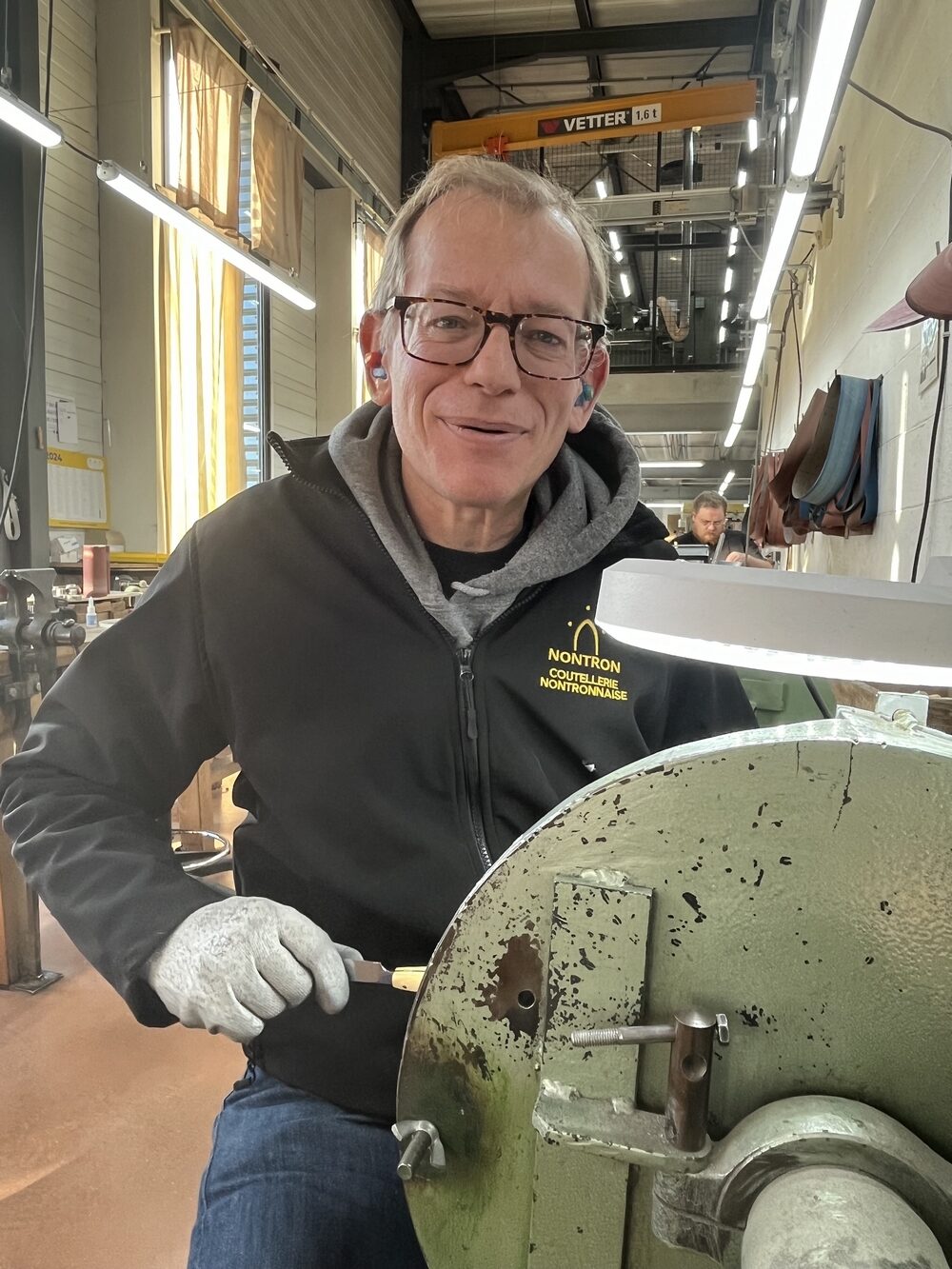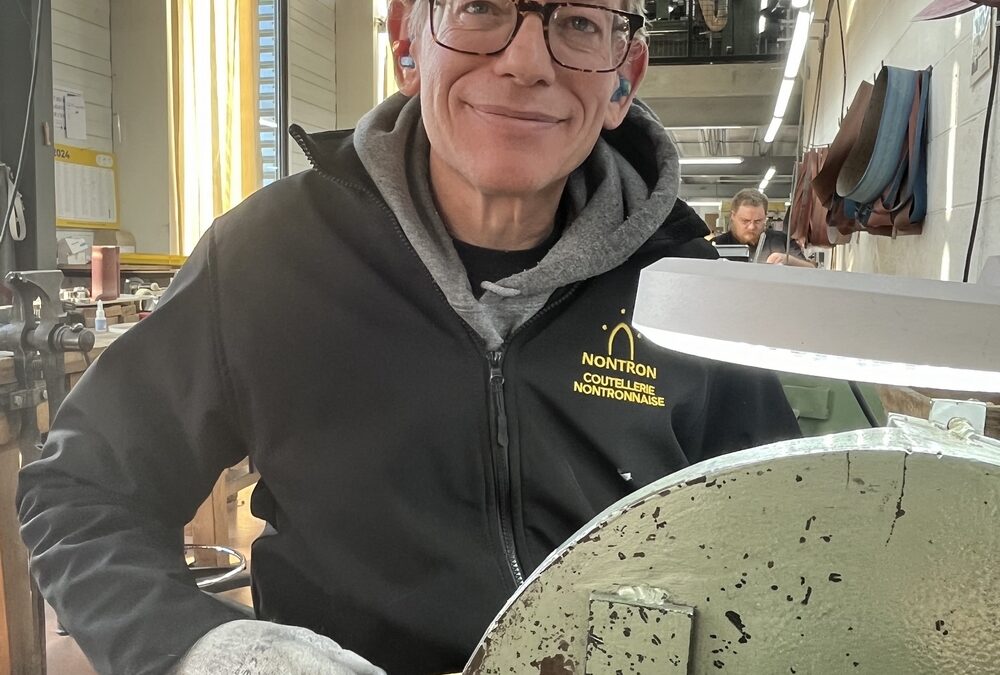From England to the Dordogne, Jeremy, a musician and cabinet-maker, has become a cutler… Zoom in on his and his sharp British eye.
Jeremy Walker was born in Hastings, not far from Brighton, a pretty seaside town in the south-east of England.
Like cats, he has had several lives. In this one, he has chosen to become an artisan cutler. He talks to us about his passion, the Périgord region he loves and where he settled in 2016, and of course La Coutellerie Nontronnaise
How did you become a cutler and why?
In fact, I owe it to La Coutellerie Nontronnaise. I have a background as a stringed instrument maker, cabinet maker and as a musician.
For years, I gave concerts as a guitarist and singer in the region. That’s how I fell in love with the Périgord, the people, “the spirit of the place” and the way of life.
Every time I left, I told myself I had to come back. I’ve always loved knives and French knives, for instance I always have a Nontron knife in my pocket.
During one of my visits, I visited the Coutellerie Nontronnaise shop. Looking at the handles and blades and admiring them I thought: wood… and steel …. that’s what I want to do, I want to be a cutler and I’ve stayed in Nontron (smile).
How long have you been working at the Coutellerie Nontronnaise?
About two years. I did three six-month training courses, at the end of which I was hired on a fixed-term contract. I was very lucky that La Coutellerie Nontronnaise agreed to train me.
It was mainly Sébastien who took care of my training, but everyone else was great. They showed me how to do things, gave me a hand, gave me advice, and took the time to explain.
What is your first outstanding memory?
The building of La Coutellerie Nontronnaise. When I first saw it, with its large, perfectly sized windows, its different levels, I thought, this is the ideal workshop!
What was your greatest challenge?
My biggest challenge was pyrography. Beautiful pyrography requires a very specific and precise movement, which means a certain amount of practice.
What are you most proud of?
Achieving a high-quality pyrography and, more generally, respecting the identity of the knife. Of course, creativity is a very important part of the craft, and every cutler leaves his own mark.
But, in my opinion, it’s also essential to maintain continuity, to be perfectly in line with the knife’s design and personality, and that goes for the handle as well as the blade. As it’s truly handmade, one must be very careful to remain consistent.
What’s your favourite knife?
My favourite knife is the steak knife. With its Yatagan blade and walnut handle, I think it’s a beautiful knife. I like its shape and I like its wood, because for me walnut is the very symbol of Périgord.
Is there a difference in the way knives are perceived in the UK and France?
There is a real difference. Here, the knife is seen more as a tool or an instrument that accompanies the meal. In England, we have a very special relationship with knives. Unlike in France, the purchase and carrying of knives is not only regulated, but restricted or even banned. This applies not only to lockable blades, but also to knives with sharp blade tips. The knife is probably seen more as a weapon, although of course we are allowed to buy table knives sets.
What does working at La Coutellerie Nontronnaise mean to you?
La Coutellerie Nontronnaise is my French family. The people are lovely and it’s fantastic to do something with your hands that you’re passionate about and that allows you to pay your rent and your bills. What’s more, La Coutellerie Nontronnaise is the leading company in this sector, in the region and, of course, in Nontron. So, it’s a real privilege to be able to work here.




